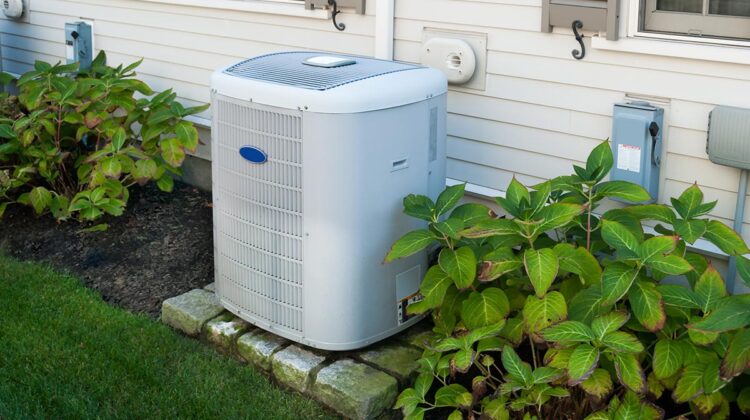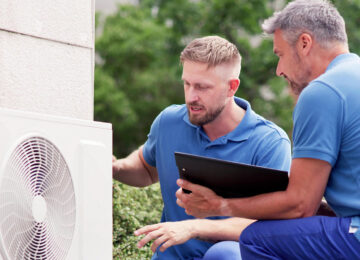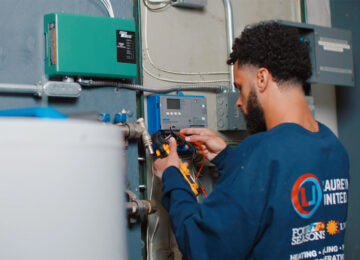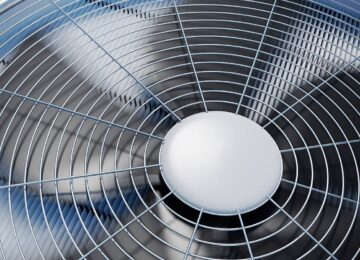Steps to Follow Before You Turn on the Air Conditioner
While spring is quickly approaching, summer will be here before we know it! Within a few months, you and other homeowners will be looking for relief from the heat that only your central air conditioning system can provide. You want your air conditioner to perform its cooling magic every time you turn it on this summer, not just the first time.
Before you plan to turn on your unit and make sure the system is ready. HVAC companies say they are seeing more calls for AC repairs in March and early April than ever before. You understand why, but only when the weather keeps you indoors most of the time do you realize how much you depend on your HVAC unit. For your convenience, here are several tips homeowners should do to prepare their HVAC before turning it on this summer:
1) Clean Your Condensers & Coils
The condenser has both an AC compressor and a fan; they work together to remove heat from inside a home by transferring it outside. The coils connect directly to the fins of the outdoor condenser, which then releases the heat into outdoor air. Take this HVAC maintenance item seriously because clogged fins significantly reduce the unit’s ability to cool your home.
2) Check Your Air Filters
Typically, HVAC units use a filter to remove airborne particles from conditioned indoor air. HVAC professionals recommend changing these filters every three months or so during heating season and more often if you have pets or live in a dusty environment. Hair, pet dander and insulation particles can clog HVAC filters so they don’t remove as much dirt from conditioned indoor air as their manufacturer claims — some AC filters claim to capture as many as 95 percent of particles in the airstream before it mixes with your home’s interior air.
3) Clean The Outside Unit Exterior
The exterior of HVAC units typically has two parts: the condensing unit that sits outside on concrete; and the evaporative unit that sometimes sits on top of it where there are exposed coils that send hot air out of the home like exhaust from a car. HVAC companies say homeowners should get on a stepladder, clean the HVAC unit and coils using a garden hose with a special spray nozzle to remove dirt from coils.
4) Check Your Electrical System
It’s important HVAC professionals leave your electrical system in good working condition because HVAC units pull a lot of power to run their compressor’s motors and fans. A blown fuse or tripped breaker could cause pressure spikes that damage the HVAC compressor. Also, check connections of all wires going into your HVAC unit to ensure they’re secure and not corroded. You can check their condition by looking for discoloration on the wires’ insulation.
5) Get Your HVAC System Balancing Done
An HVAC technician will look for air leaks that allow conditioned indoor air to escape your home. HVAC companies recommend you do this in the winter when HVAC professionals typically find problems with improperly sealed doors and windows.
The HVAC unit has an electrical system, refrigerant, oil reservoirs, and lubricants with moving parts to create proper balance so it operates efficiently throughout the summer months.
6) Test Your HVAC Blower Motor & Fan
HVAC technicians check blower motor’s RPMs using an oscilloscope or ohmmeter because if your fan is running at the wrong speed, it could cause pressure spikes that damage your HVAC compressor. They also test connections on electrical wires leading into your HVAC unit to ensure they’re secure and not corroded. HVAC technicians also check your HVAC fan’s capacitor — it keeps the HVAC blower’s motor running at optimal RPMs and prevents pressure spikes that will damage your HVAC compressor.
7) Inspect Your HVAC Refrigerant Leakage
This maintenance item ensures you don’t lose too much of the HVAC system’s refrigerant because when there’s a significant loss, HVAC professionals must replace it to remove humidity from conditioned air. But before an HVAC technician replaces lost refrigerant, they’ll make sure all copper lines are properly sealed with refrigerator grade sealers and all HVAC equipment and HVAC electrical systems are properly grounded. HVAC technicians also check for HVAC refrigerant residue at HVAC compressor terminals and on nearby surfaces inside and outside of your HVAC unit.
8) Get HVAC System Access Panels Reinstalled
HVAC system access panels provide professionals with easy access to HVAC components like outdoor HVAC condensing units, evaporative coils, air filters, and blower motors so they can perform regular maintenance without forcing you to take apart your HVAC unit.
If your air conditioner is relatively old or has an issue that can’t be addressed without replacement, give us a call!
-
Phone: (413) 684-5100
-
E-mail: CONTACT@LAUREYNSUNITED.COM
-
OPEN 8AM-5:00PM:
MONDAY - FRIDAY




